Humans have been harnessing marijuana’s health benefits as early as the third millennium BCE. But it is not until the 19th century that physicians started to see its tremendous potential in remedying various health conditions. Indeed, research findings and anecdotal evidence attest to the supposed medicinal benefits of the herb. Furthermore, it provides fast-acting and long-lasting relief from symptoms, all while having lesser adverse effects compared to traditional prescription medications. That is why more and more people are turning to cannabis as alternative medicine in the hopes of managing debilitating symptoms.

Page Content
Where Marijuana Get Its Therapeutic Properties
Much of the touted medicinal properties of the herb are derived from its cannabinoids. These are organic compounds that bind and interact with the CB1 and CB2 receptors in the brain and body. Consequently, it triggers various physiological processes, such as mood regulation, pain perception, immune reaction, and many more. To date, there are over 100 known cannabinoids. Among the most notable ones are 9-delta-tetrahydrocannabinol (THC) and cannabidiol (CBD).
THC is a psychoactive compound that alters your cognition and state of consciousness. In simple words, it gets you high. This is why it is most commonly used for recreational purposes. However, that is not to say that it cannot be used for medicating. THC also offers valuable medicinal benefits such as pain relief, antidepressant, and anxiolytic effects, among others.
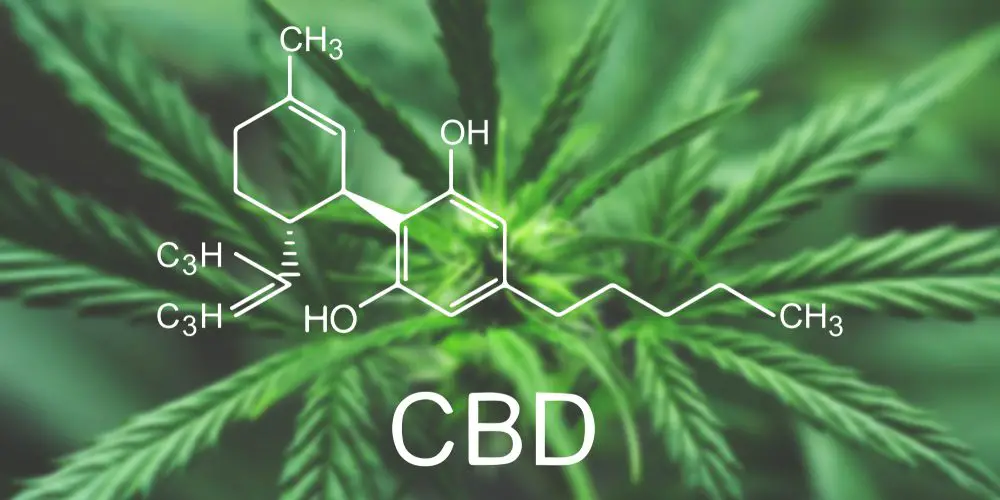
CBD, on the other hand, is THC’s non-psychoactive counterpart. It does not get you high, but it is renowned for immense therapeutic benefits. CBD is often the preferred choice of medicating patients who want to harness the herb’s healing properties without feeling intoxicated.
Aside from THC and CBD, other cannabinoids such as CBG and others also have healing properties. However, they occur in much lower concentrations.
Marijuana plants also have terpenes. Not only do these aromatic compounds have medicinal properties, but they also enhance the effects. Essentially, they amplify the cannabinoids’ healing effects, all while making it faster and easier to absorb.
Health Benefits Of Marijuana
Marijuana health benefits offers holistic curative and health-enhancing effects – both psychological and physiological in nature. From minor pain relief to remedying severe symptoms of chronic health diseases, it has an array of medicinal properties to help you.
1. Antidepressant
Cannabis is known for its mood-enhancing properties – thanks to the significant role of the endocannabinoid system (ECS) in mood regulation. Studies show that cannabinoids bind with CB1 receptors in the brain. Consequently, these compounds aid in new neurons forming in the adult hippocampus, and triggering antidepressant-like effects. Although the mechanisms involved remain largely unknown, the results indicate and justify the need for more research.

CBD also shows potent antidepressant properties. It helps regulate the mood by increasing serotonin levels through its interaction with the 5-HT1A neuro-receptors.
2. Anxiolytic
Just like how it alleviates depressive symptoms, THC also acts as a potent anxiolytic agent by binding with CB1 and serotonin (5-HT2A) receptors in the brain. An excessive intake, however, follows a reverse U-shaped dose-response pattern. Instead of lowering anxiety levels, it may attenuate the fear-related behaviors.
CBD, meanwhile, may enhance the efficacy of the major inhibitory neurotransmitter GABA (gamma-aminobutyric acid). This helps alleviate anxiety by counteracting the chemicals triggered by cortisol during the stress response.
3. Analgesic
Cannabis has a reputation for providing potent pain relief – thanks to THC and CBD’s antinociceptive properties. In essence, THC alleviates pain by blocking neuronal transmission in pain pathways. This basically interferes with your ability to feel and perceive pain. Meanwhile, CBD soothes pain by stimulating the production of natural painkilling chemicals such as anandamide and serotonin.
4. Anti-Tumor and Anti-Proliferative
Both CBD and THC show promising potential in treating cancer – thanks to their antitumor and anti-proliferative properties.

A study conducted by Preet et al. (2007) demonstrated THC’s ability to inhibit the growth and proliferation of lung cancer cells. Meanwhile, CBD slows down the progression of cancer cells through the activation of CB2 receptors – thereby significantly reducing the ability of cancer to spread.
5. Antiemetic
Nausea and vomiting are among the most common complaints of cancer patients undergoing chemotherapy. CBD shows great potential in suppressing emesis by activating the 5-HT1A receptor, which plays a vital role in controlling nausea and vomiting. Meanwhile, THC suppresses the urge to vomit by activating the CB1 receptors in the enteric plexus, central nervous system, and parasympathetic nervous system.
6. Anticonvulsive
Controlled doses of CBD is effective in reducing the frequency of convulsive seizures in patients. By decreasing the release of excitatory neurotransmitters in the CNS, it helped control seizures in patients suffering from Dravet and Lennox-Gastaut syndrome.
7. Anti-Insomnia
Depending on several factors such as the strain and terpene concentration, marijuana could exert either stimulating or sedative effects. Indica strains, for example, Most Indica strains – are known for their sleep-inducing properties. Generally, they have above-average levels of caryophyllene, terpinolene, and myrcene. These are terpenes that induce drowsiness.

THC, on the other hand, affects the body’s sleep-wake cycle in two ways:
- Binding with CB1 receptors in the hypothalamus to inhibit the arousal system
- Increasing the adenosine levels in the system
Either way, both interactions result in immense relaxation and sleepiness, which is a sure remedy for insomnia.
8. Anti-Inflammation
Inflammation is a crucial part of the body’s defense system. However, the immune response may sometimes get triggered unnecessarily for extended periods – thereby causing more harm than good. In such cases, cannabinoids such as THC and CBD are immensely helpful as anti-inflammatory agents. It triggers immunosuppression by downregulating cytokine and chemokine production while upregulating T-regulatory cells.
9. Neuroprotective
One of marijuana’s most incredible health benefits is its neuroprotective property. Especially in patients with neurodegenerative diseases, limiting neurological damage is of utmost importance. CBD, in particular, has been shown to slow down the decrease in hippocampal neurogenesis. It also possesses potent antioxidant properties. Consequently, CBD protects the brain from neurotoxicities caused by high levels of glutamate.
10. Antipsychotic
Synthetic antipsychotic drugs used in mitigating the symptoms of mental illnesses such as schizophrenia and bipolar disorder have shown limited effectiveness. On top of that, it can cause serious side effects such as neurological damage, diabetes, heart disease, impotence, and seizures.

CBD, on the other hand, has been shown to reduce abnormal brain functions associated with psychosis due to its potent antipsychotic qualities. Research indicates that CBD has a pharmacological profile similar to that of atypical antipsychotic drugs. However, it does not produce adverse effects usually associated with these synthetic drugs. This makes cannabidiol far more desirable remedy for psychotic disorders like schizophrenia.
Possible Risks
Marijuana’s holistic therapeutic properties are indeed astounding. But as with all medications, you also have to be aware of potential risks. While it is true that you cannot fatally overdose on THC, excessive consumption can still cause mild side effects such as:

- Dizziness
- Drowsiness
- Short-term memory loss
- Anxiety and paranoia
- Hallucinations and delusions
- Psychosis and schizophrenia-like symptoms
Meanwhile, CBD has a safer pharmacological profile than THC. Even a dosage of 1500 mg per day of CBD is well tolerated by the body. However, if you consume more CBD than necessary, it can cause diarrhea, changes in appetite, and fatigue. So, it stands to reason that consulting a physician and following the prescribed dosage is still the best thing to do to get the best results.
Cannabis: Nature’s Promising Panacea
Modern medical science has worked wonders in advancing treatments for various diseases through synthetic medications. However, such innovations are far from perfect and are still fraught with limitations and side effects. That is why some people opt to go the all-natural route and try alternative medicines such as cannabis.

This organic panacea is indeed promising with the tremendous potential it holds in treating various maladies. However, it is important to remember that the research conducted on the herb is still limited due to legal restrictions and its illicit status in most countries. We still have a lot to know about its safety and efficacy in the long run, as well as how it affects each individual. As such, it is crucial to always ask for professional medical advice before considering cannabis as part of your medical treatment.

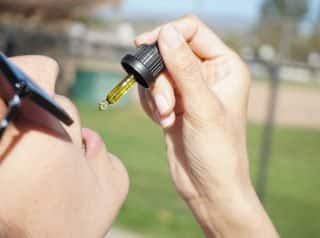
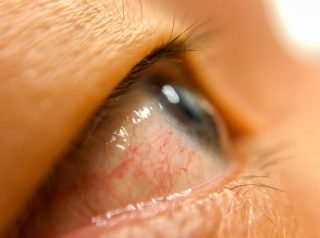
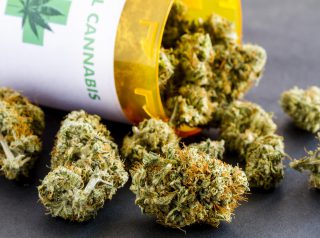
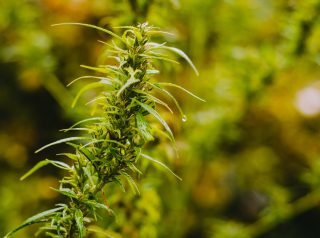

Nice article. Medical cannabis is known to raise treatment usefulness of hepatitis C by lessening the side-effects brought on by the therapy. Numerous people can’t seem to finish the treatment course on account of these kinds of side-effects, which may now be easily handled.